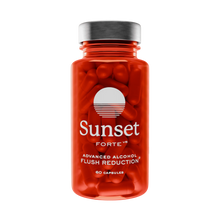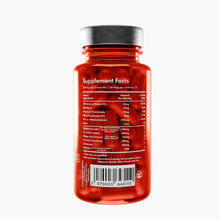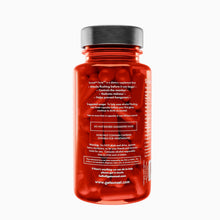Sudden Alcohol Intolerance? Here’s What You Need to Know

⏱️ TL:DR ∙ Article in 20s
Suddenly reacting badly to alcohol? This article breaks down what might be causing your symptoms—like redness, nausea, or breathing issues—after drinking. We’ll explore potential triggers such as new health issues, medication interactions, or aging, and explain the difference between alcohol intolerance and allergies. Plus, get practical suggestions on managing these reactions, whether it’s adjusting your diet, medication, or alcohol intake. If you’re concerned about sudden alcohol intolerance, this guide has the answers you need.
Action items:
- What is Sudden Alcohol Intolerance?
- Symptoms of Sudden Alcohol Intolerance
- Causes of Sudden Alcohol Intolerance
- When to Seek Medical Advice
- Intolerance or Allergy?
Share this article
Copy and paste this link
You head out with friends, expecting the usual fun night, but instead, one drink leaves you flushed, nauseous, or struggling to breathe. What gives? This kind of reaction is far from your typical experience, and now you’re left wondering why your body is suddenly unable to handle something it has always tolerated.
What is Sudden Alcohol Intolerance?
Sudden alcohol intolerance refers to when you have previously consumed alcohol without any issues but all of a sudden begin to experience adverse reactions after drinking. This can often seem to happen out of nowhere and can be quite alarming. Unlike general alcohol intolerance, which would be noticed the first time you drink alcohol, sudden alcohol intolerance can develop at any stage in life, often due to changes in health or other external factors.
Symptoms of Sudden Alcohol Intolerance

The symptoms of sudden alcohol intolerance are the same as those experienced with general alcohol intolerance, but may be more surprising to you if this is your first time experiencing them. According to the Mayo Clinic, these symptoms can include:
- Flushing: Redness and warmth, particularly in the face, neck and upper body.
- Nausea and Vomiting: Feeling sick or vomiting after drinking, even small amounts.
- Red Itchy Skin Bumps: Hives or itchy bumps all over the body.
- Rapid Heartbeat: Experiencing an abnormally fast heartbeat (tachycardia) after drinking.
- Low Blood Pressure: Dizziness, lightheadedness, or a sense of fainting when standing up quickly.
- Breathing Difficulties: Shortness of breath or wheezing, particularly in those with underlying respiratory conditions.
All of these symptoms are your body’s way of telling you that something has changed. Recognising them is the first step in figuring out what’s causing the sudden intolerance and how you can manage it moving forward. If you're interested, we go into further detail about these symptoms in our more general article about alcohol intolerance.
As always, if you suddenly experience any of these symptoms after drinking alcohol, you should consult with a licensed medical practitioner for a proper diagnosis.
Causes of Sudden Alcohol Intolerance

A sudden onset of alcohol intolerance can often be linked to recent changes occurring in your body or environment. It can sometimes even be a warning sign of a more serious underlying issue. This is why it's always a good idea to see your doctor if you suspect this might be the case. For your reference, here are some examples of things that can cause you to have a sudden intolerance to alcohol:
1. New Health Issues
Sometimes, new health conditions can sneak up on us, leading to a sudden intolerance to alcohol. Here are a few examples:
- Liver issues: Take your liver, for instance. If you’ve developed liver disease, your body’s ability to process alcohol might be compromised. The liver is your body’s workhorse when it comes to breaking down alcohol, so if it’s not pulling its weight, you’re left with more alcohol in your system than your body can comfortably handle.
- Gut problems: Then there’s your gut. Inflamatory Bowel Disease (IBD) can really mess with how your digestive system handles alcohol. According to Dr. Sudanda Kane from the Mayo Clinic, "patients with IBD report worse gastrointestinal symptoms following alcohol consumption."
- Hormones: Big changes like menopause or thyroid problems can shift the hormonal balance in your body and affect how you process alcohol. According to Dr. Jewel Kling of the Mayo Clinic, "alcohol use during menopause can worsen symptoms like hot flushes and sweating."
These are just a few examples of how changes in your health can turn alcohol into an unexpected problem. If you think a new health issue might be to blame, it’s crucial to get a proper diagnosis from a healthcare professional.
2. Medication Interactions
Certain medications can change the way your body handles alcohol, leading to increased alcohol intolerance.
Take antibiotics like metronidazole, for example. When mixed with alcohol, they can cause a buildup of acetaldehyde, a toxin that makes you feel flushed, sick, and ready to swear off alcohol altogether. It’s like having a hangover before you’ve even finished your drink.
Antidepressants, especially SSRIs, are another culprit. These can amplify alcohol’s effects, making you feel more drowsy, dizzy, or out of sorts after just one glass. According to Dr. Daniel Hall-Flavin of the Mayo Clinic, "it's best to avoid combining antidepressants and alcohol. It may worsen your symptoms, and it can be dangerous."
And then there’s Ibuprofen and other NSAIDs. They might seem harmless, but when combined with alcohol, they can irritate your stomach lining, setting you up for ulcers or bleeding.
If you’re experiencing similar changes after starting a new medication, it might be time to have a chat with your doctor or pharmacist.
3. Getting Older
As you get older, you might notice that your body starts to handle alcohol differently. This isn't just your imagination—it's actually a natural part of aging.
You see, as we age, our bodies produce less of an important enzyme called alcohol dehydrogenase (ADH). This enzyme plays a key role in breaking down alcohol in your system, turning it into a less toxic substance for your body to process more easily. When ADH levels drop, as they often do with age, alcohol lingers in your bloodstream longer. This can make the toxic effects of alcohol stronger and last longer, even if you're drinking the same amount you always have.
But it’s not just about enzyme levels. Your liver, which is the main organ responsible for metabolizing alcohol, might also become less efficient as you age. According to Dr. Tyler S. Oesterle at the Mayo Clinic:
“throughout our lives, the liver has to process everything, all the crud that comes our way. And so we’re just much more statistically likely — from just living — to have a liver that’s just not as good as it was when we were young.”
On top of that, as we age, many of us start taking more medications, and some of these can interact with alcohol in ways that further disrupt how it's processed. The combination of reduced enzyme activity, slower liver function, and potential medication interactions can all add up, making your body more sensitive to alcohol.
4. Allergies or Food Sensitivities
If you're trying an alcoholic beverage for the first time, allergies and food sensitivities can sometimes be the hidden culprits behind a sudden alcohol intolerance. This can be due to an allergic response to ingredients within the drink, such flavourings, preservatives, or even particular grains used in brewing that you haven't been previously exposed to.
For example, I have a friend who loves beer but always feels sick after drinking it. Turns out, he has a gluten sensitivity and was reacting to the wheat! Once he switched to gluten-free beers, he felt much better.
If you suspect an allergy or food sensitivity is to blame, it’s worth getting tested or consulting with a healthcare provider to identify the specific cause. Once you know what’s triggering your symptoms, you can make more informed choices about what—and how much—you drink, so you can enjoy alcohol without the unpleasant surprises.
When to Seek Medical Advice

Sudden alcohol intolerance can sometimes indicate a more serious underlying health issue. According to the Mayo Clinic, it's important to seek medical advice if you experience any of the following:
- Severe Symptoms: If you experience extreme reactions like difficulty breathing, chest pain, or severe nausea, seek immediate medical attention.
- Persistent Issues: If your symptoms continue to occur every time you drink alcohol, it’s wise to consult a healthcare provider to rule out any underlying conditions.
- New Medications: If your symptoms began after starting a new medication, talk to your doctor about possible interactions.
How is Sudden Alcohol Intolerance Different from an Alcohol Allergy?

While sudden alcohol intolerance and alcohol allergy might share similar symptoms, they aren't the same thing:
-
Sudden alcohol intolerance occurs when your body suddenly loses the ability to process alcohol, often due to changes in health, aging, or new medications. As discussed, symptoms are typically related to alcohol metabolism and can include flushing, nausea, and headaches.
-
Alcohol allergy is an immune system response to specific ingredients in alcoholic beverages, such as grains, yeast, or sulfites. Symptoms can include itching, swelling, hives, and severe reactions like anaphylaxis in rare cases. Unlike intolerance, an allergy involves an allergic reaction, which can be more serious and require immediate medical attention.
I've seen the serious effects of a true alcohol allergy firsthand. One of my customers, let's call him Jeff, had to be rushed to the hospital after going into anaphylactic shock from just a sip of beer. It was terrifying. With an intolerance, the symptoms are uncomfortable but not as serious.
Understanding these differences can help you pinpoint the cause of your symptoms and get the most appropriate medical attention if needed.
Managing a Sudden Alcohol Intolerance

If you’ve realised that your body is suddenly intolerant to alcohol, don’t worry—there are steps you can take to manage it and still enjoy your social life.
1. Limit or Avoid Alcohol: The simplest and most effective solution is to reduce your alcohol intake or cut it out altogether. By listening to your body and respecting its new limits, you can avoid those uncomfortable reactions and still have a good time.
2. Consult a Doctor: It’s important to get to the bottom of why this is happening. Work with your healthcare provider to identify any underlying causes, whether it’s a new health condition or a medication interaction. They can help you understand what’s going on and guide you on the best way to move forward.
3. Adjust Medications: If your sudden intolerance is linked to a medication you’re taking, talk to your doctor. They may be able to adjust your dosage or switch you to a different medication that won’t interfere with your ability to enjoy a drink.
4. Explore Alternatives: Just because alcohol is off the table doesn’t mean you have to miss out. Try alcohol-free beverages or low-alcohol options that let you join in the fun without the risk of unpleasant side effects. There are plenty of tasty and sophisticated options available, so you can still raise a glass with friends.
Taking these steps can help you manage sudden alcohol intolerance and ensure that your social life doesn’t suffer. Listen to your body, get the right support, and explore alternatives that keep you feeling your best.
Conclusion
Sudden alcohol intolerance can catch you off guard and potentially ruin a great night out. But the good news is that understanding what might be behind these unexpected reactions can help you put them in perspective and take any appropriate actions. If you’ve recently found that alcohol isn’t agreeing with you the way it used to, it’s essential to listen to your body and consult with a healthcare professional. They can help rule out any serious underlying issues and guide you on the best way to manage your symptoms.
Enjoy drinking again and get Sunset Alcohol Flush Support for
33% off while stocks last!
What’s inside?
We use a pharmacist-formulated blend of Glutathione, Dihydromyricetin, Cysteine, L-Theanine, & B Vitamins to stop alcohol flushing before it can begin.
Learn more
94% of people who try Sunset are satisfied with the results.











